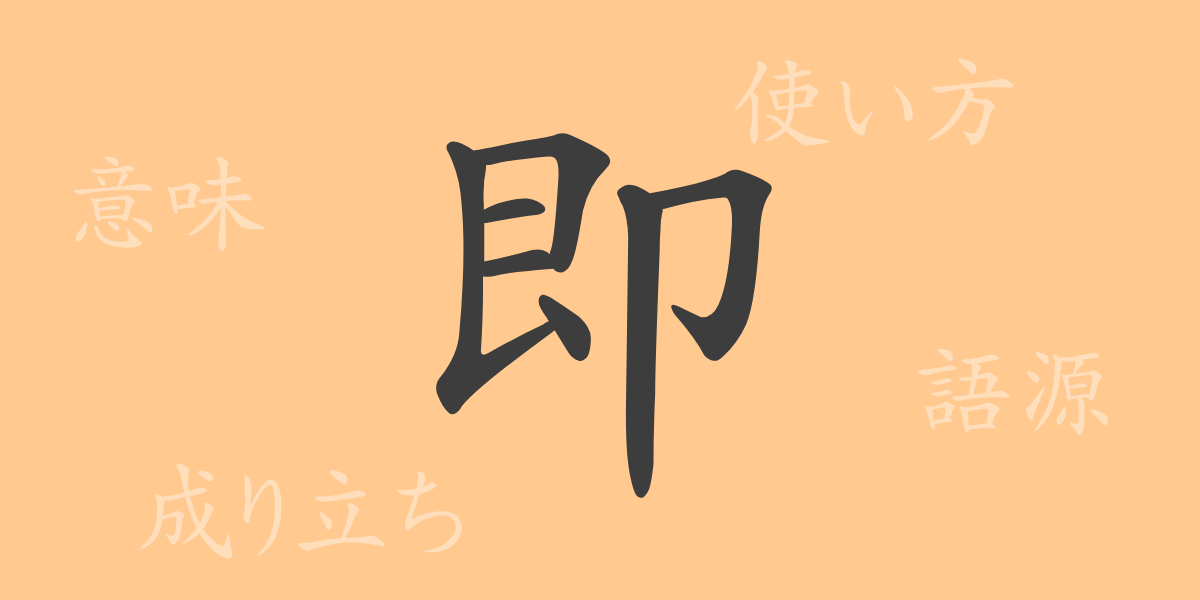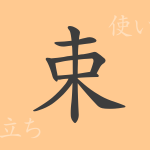The richness of the Japanese language is evident in its characters. Particularly, Kanji characters encapsulate profound meanings and serve as keys to transmitting culture and history. This article shines a spotlight on “(即)”, a commonly used Kanji in Japan, delving into its charm from its origins to meanings, usage, readings, and even idioms.
Etymology of 即 (そく – Soku)
The Kanji “(即)” originated in ancient China, initially depicted the figure of a person sitting on an altar. Over time, it evolved to signify “immediately” or “right away”, reflecting the act of promptly taking action. In classical Chinese, it evolved from the act of enthroning when offering prayers to gods to mean performing something immediately.
Meaning and Usage of 即 (そく – Soku)
The Kanji “(即)” carries meanings such as “immediately” or “on the spot”. It denotes taking prompt action without delay and encourages swift responses. Figuratively, it also indicates complete conformity to a state or concept. For example, “即座に応答する” means to respond promptly, while “即位する” signifies ascending to the throne as a king or emperor.
Readings, Stroke Count, and Radical of 即 (そく – Soku)
The Kanji “(即)” plays a significant role in both form and meaning in written Japanese:
- Readings: On’yomi (音読み) ‘ソク’ (soku), not commonly used in Kun’yomi (訓読み).
- Stroke Count: 7 strokes in total.
- Radical: Its radical is “卩” (ふしづくり – fushizukuri).
Idioms and Proverbs Using 即 (そく – Soku) and Their Meanings
There are various idiomatic expressions and proverbs featuring the Kanji “(即)”, showcasing the richness of Japanese language:
- 即座に (そくざに – sokuzani): Immediately, without hesitation.
- 即効性 (そっこうせい – sokkousei): Immediate effectiveness or impact.
- 即物的 (そくぶつてき – sokubutsuteki): Taking things as they are, practical attitude.
- 即心即仏 (そくしんそくぶつ – sokushinsokubutsu): Zen teaching implying achieving enlightenment in the present life.
Conclusion on 即 (そく – Soku)
The Kanji “(即)” is a versatile character that denotes prompt action and direct responses. Its simple yet powerful meanings are invaluable in business and daily life contexts. As a commonly used Kanji in Japan, “(即)” enriches our communication instantly and is indispensable in the world of language. Let’s continue to master and utilize this Kanji to understand and leverage its profound meanings.

























